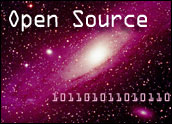
IBM announced plans this week to contribute what it calls “key intellectual assets” to the open source community, in an effort to help companies and software developers adopt and share best practices for Ajax software development.
With its software contributions the firm aims to foster an industry collaboration and adoption of Ajax, a technology that improves Web application responsiveness, and do so at a lower cost point and with less complexity. The technology contributions will extend the code already available in the Dojo Toolkit, which will enable internationalization of applications as well as make them fully accessible to persons with disabilities through a variety of assistive technologies, including DHTML and Accessible widgets.
Expanding Ajax
IBM’s donation will also extend the Dojo Toolkit’s existing data model and provide a foundation architecture and Web-based tools for the industry to engineer, collaborate on, share and reuse software development best practices, IBM said.
Ajax — short for Asynchronous JavaScript+XML — is a type of “Rich Internet Application.” The technology enables greater usability and responsiveness of browser-based applications, with the benefits of a zero-install and extremely low maintenance of Web development. Developers have the ability to update portions of a Web page without refreshing the entire screen. This can enable users to scroll through a virtual map or photographs without refreshing their browser screens.
Additionally, developers can allow users to drag and drop objects inside a Web browser similar to the capabilities available on computer desktops to move folders and documents around. Ajax provides the ability to develop rich buttons sets, icons, scroll bars, menus and widgets that can ease and speed navigation, as well as simplify information retrieval.
Providing Expertise
IBM will also provide expertise to integrate Dynamic Web Accessibility into the Dojo Toolkit widget set. The Dynamic Web Accessibility specification is being developed within the World Wide Web Consortium’s (W3C) Web Accessibility Initiative. It provides a mechanism for creating rich user interface components on the Web which are fully accessible via the keyboard and when using assistive technologies such as screen readers and screen magnifiers.
This enhanced accessibility, which mimics the behavior of client side user interface controls, supports the rich internet applications built using Ajax and Dojo.
The Dojo Foundation manages an open source Javascript toolkit that makes professional Ajax Web development easier and faster.
“By contributing intellectual property to help establish a common, open industry framework and ecosystem around Ajax software development, IBM together with the Dojo Foundation and others hope to foster more innovation and adoption of Ajax,” said David Boloker, CTO, Internet Emerging Technologies, IBM. “The Dojo Foundation is an ideal partner for these contributions because of their strong growing community, talented developers, extensible architecture and powerful and innovative abstractions for JavaScript.”
Open Standards for Ajax
Open Standards such as DHTML, JavaScript, Cascading Style Sheets, and XML are core to Ajax development activities. IBM said its goal is to help businesses leverage open standards and open source to increase overall interoperability of Ajax based solutions.
The new open source Ajax technology is designed to improve software development practices within organizations and throughout the industry.
“IBM is doing for the Ajax software development process what Eclipse has done for the integration of software tools, what Apache did for Web application servers and what Linux did for operating systems,” said Boloker. “This technology contribution enables the greater community and our customers.”



















































